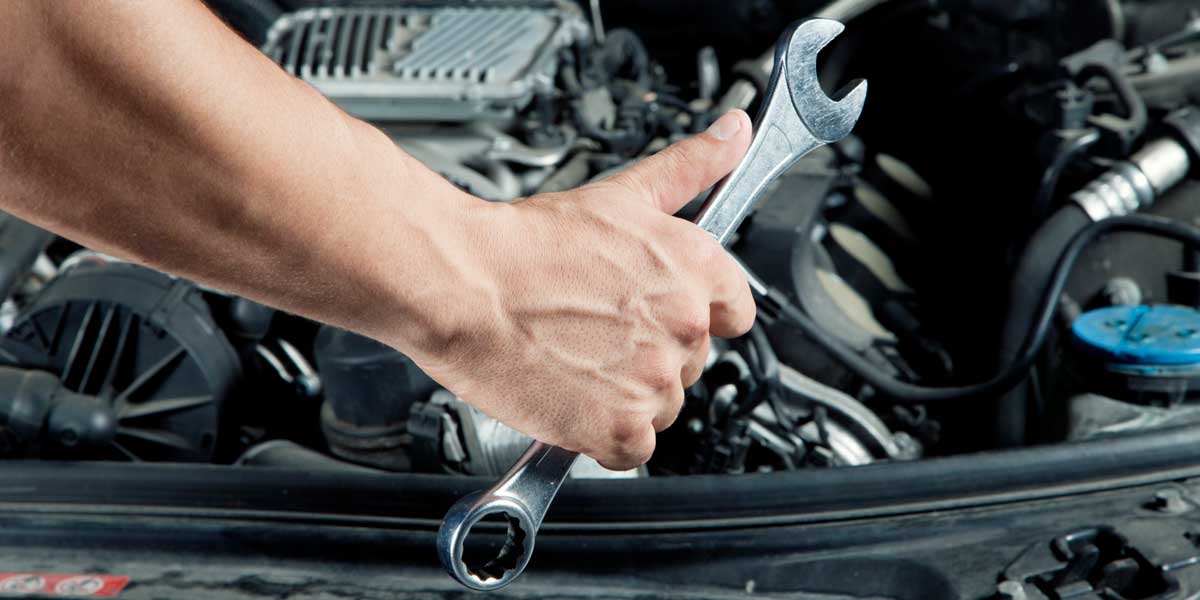All Categories
Featured
Liable for integrating the rotation of the crankshaft and camshaft, the timing belt makes certain the engine's valves open and close at the proper times throughout the combustion process. If the timing belt falls short, it can result in extreme engine damage.
What Is a Timing Belt? The timing belt is a long, toothed rubber or composite belt that attaches the crankshaft to the camshaft(s) in an interior burning engine. Its task is to keep the engine's shutoffs and pistons in sync, ensuring the engine runs successfully. The timing belt also manages other important engine functions like the water pump and the power steering pump, depending on the lorry.
![]()
Without the proper timing, the engine's valves and pistons can collide, leading to pricey and considerable damages. Replacing the timing belt on routine is one of the finest means to ensure your engine runs at its finest and protect against pricey fixings.
Why Timing Belt Replacement Issues. Avoiding Catastrophic Engine Damage: The most significant danger of not replacing a used timing belt is engine failing. If the timing belt breaks while the engine is running, the camshaft and crankshaft can become misaligned, causing the valves and pistons to collide. This can result in curved shutoffs, damaged pistons, or even a ruined engine. Changing the timing belt at the advised intervals is the most effective way to stop such devastating damages, conserving you from the anxiety and high expense of engine repair work or replacement.
![]()
Keeping Engine Efficiency: A timing belt that remains in excellent condition makes certain that all engine components operate in excellent consistency. If the timing belt is worn or extended, it can trigger the engine to lose power, experience rough idling, or struggle to start. By changing the timing belt consistently, you can keep your engine performing at peak performance, which assists keep optimum gas economy and efficiency.
Preventing Unexpected Break downs: A broken timing belt can cause your engine to quit quickly, possibly leaving you stranded in the middle of a journey. By changing your timing belt on time, you lessen the risk of unexpected break downs that might leave you in a troublesome or unsafe situation. Normal upkeep lowers the opportunities of experiencing these kinds of disturbances, aiding you remain on the road longer without stressing regarding your engine failing.
Affordable Upkeep: Timing belt substitute is a lot more economical than repairing or changing an engine that's been harmed because of a timing belt failure. While the price of replacing the timing belt might differ depending on your car and its area, it is much more economical than the prices connected with significant engine repair services or substitutes. Changing your timing belt at the advised intervals can save you a significant quantity of money over the long term by protecting against damages to your engine.
When Should You Replace Your Timing Belt? The timing belt doesn't last forever, and the majority of manufacturers suggest changing it between 60,000 and 100,000 miles. The specific timing depends on your automobile's make, design, and driving conditions, so it's important to inspect your owner's guidebook for details assistance.
Indicators that your timing belt might require interest consist of unusual engine sounds (such as a piercing whining or ticking audio), difficulty starting the engine, or a decrease in engine performance. If you observe any of these signs, it's crucial to have the timing belt evaluated by an expert auto mechanic.
![]()
Conclusion. The timing belt is a tiny but important component of your engine, and routine replacement is crucial to maintaining your vehicle's performance and preventing expensive damages. By remaining on top of timing belt maintenance, you'll ensure your engine operates efficiently, prevent unforeseen malfunctions, and secure your automobile from major repair services. Watch on your vehicle's recommended timing belt replacement schedule, and constantly seek advice from with a relied on technician to keep your engine running efficiently for several years ahead.
What Is a Timing Belt? The timing belt is a long, toothed rubber or composite belt that attaches the crankshaft to the camshaft(s) in an interior burning engine. Its task is to keep the engine's shutoffs and pistons in sync, ensuring the engine runs successfully. The timing belt also manages other important engine functions like the water pump and the power steering pump, depending on the lorry.

Without the proper timing, the engine's valves and pistons can collide, leading to pricey and considerable damages. Replacing the timing belt on routine is one of the finest means to ensure your engine runs at its finest and protect against pricey fixings.
Why Timing Belt Replacement Issues. Avoiding Catastrophic Engine Damage: The most significant danger of not replacing a used timing belt is engine failing. If the timing belt breaks while the engine is running, the camshaft and crankshaft can become misaligned, causing the valves and pistons to collide. This can result in curved shutoffs, damaged pistons, or even a ruined engine. Changing the timing belt at the advised intervals is the most effective way to stop such devastating damages, conserving you from the anxiety and high expense of engine repair work or replacement.

Keeping Engine Efficiency: A timing belt that remains in excellent condition makes certain that all engine components operate in excellent consistency. If the timing belt is worn or extended, it can trigger the engine to lose power, experience rough idling, or struggle to start. By changing the timing belt consistently, you can keep your engine performing at peak performance, which assists keep optimum gas economy and efficiency.
Preventing Unexpected Break downs: A broken timing belt can cause your engine to quit quickly, possibly leaving you stranded in the middle of a journey. By changing your timing belt on time, you lessen the risk of unexpected break downs that might leave you in a troublesome or unsafe situation. Normal upkeep lowers the opportunities of experiencing these kinds of disturbances, aiding you remain on the road longer without stressing regarding your engine failing.
Affordable Upkeep: Timing belt substitute is a lot more economical than repairing or changing an engine that's been harmed because of a timing belt failure. While the price of replacing the timing belt might differ depending on your car and its area, it is much more economical than the prices connected with significant engine repair services or substitutes. Changing your timing belt at the advised intervals can save you a significant quantity of money over the long term by protecting against damages to your engine.
When Should You Replace Your Timing Belt? The timing belt doesn't last forever, and the majority of manufacturers suggest changing it between 60,000 and 100,000 miles. The specific timing depends on your automobile's make, design, and driving conditions, so it's important to inspect your owner's guidebook for details assistance.
Indicators that your timing belt might require interest consist of unusual engine sounds (such as a piercing whining or ticking audio), difficulty starting the engine, or a decrease in engine performance. If you observe any of these signs, it's crucial to have the timing belt evaluated by an expert auto mechanic.

Conclusion. The timing belt is a tiny but important component of your engine, and routine replacement is crucial to maintaining your vehicle's performance and preventing expensive damages. By remaining on top of timing belt maintenance, you'll ensure your engine operates efficiently, prevent unforeseen malfunctions, and secure your automobile from major repair services. Watch on your vehicle's recommended timing belt replacement schedule, and constantly seek advice from with a relied on technician to keep your engine running efficiently for several years ahead.
Latest Posts
Discover Exclusive Auto Repair Specials in Chicago at Montclare Auto Repair
Published May 29, 25
1 min read
Take Advantage of Special Auto Repair Offers in Chicago at Montclare Auto Repair
Published May 25, 25
1 min read
Find Outstanding Car Repair Services at Montclare Auto Repair – Drive with Confidence
Published May 24, 25
1 min read
More
Latest Posts
Discover Exclusive Auto Repair Specials in Chicago at Montclare Auto Repair
Published May 29, 25
1 min read
Take Advantage of Special Auto Repair Offers in Chicago at Montclare Auto Repair
Published May 25, 25
1 min read
Find Outstanding Car Repair Services at Montclare Auto Repair – Drive with Confidence
Published May 24, 25
1 min read